family background / After serving several tours overseas in the U.S. Army, Devon joined his parents, Gary and Marlis, at their farm in The Dalles, Oregon, about five years ago. He’s been focused on implementing modern cherry growing techniques to increase production and efficiency.
grower / The Dalles, Oregon
age / 34
crops / Cherries and pears
business / Wade and Rufener Orchards
How did you get your start?
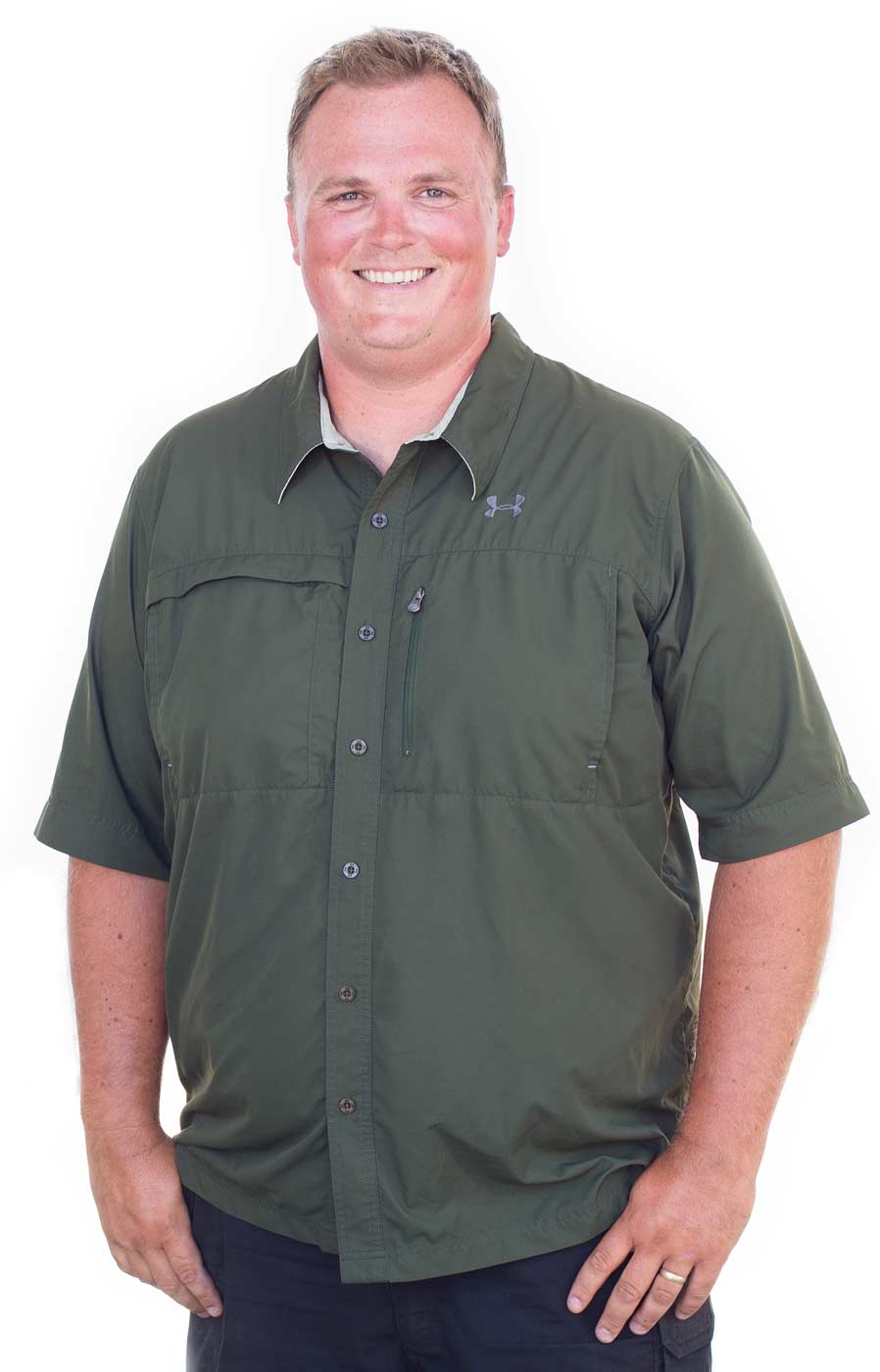 I grew up on a small farm of sheep, goats and chickens, and I started learning the business in 2012 after my parents purchased the fruit tree orchard in 2009.
I grew up on a small farm of sheep, goats and chickens, and I started learning the business in 2012 after my parents purchased the fruit tree orchard in 2009.
After high school, I joined the military and did that for 16 years and still serve in the Army National Guard reserve.
I went to college for a little bit and I didn’t enjoy it. Working the farm seemed like a good fit because I love working outdoors with my hands, doing something other than sitting at a desk.
What challenges did you have as a new person to farming?
It’s hard work. I don’t think I’d ever work this hard in a regular 9 to 5 job. From pruning, raking — all the chores were more than I expected.
Before, I’d always thought that a tree grew, you picked it once a year and that was it. I didn’t realize how much work it was to go out there and prune one tree, let alone 50 acres with 300 trees per acre.
The rows of trees seem to go on and on forever. When you’re done with that, you’ve got to rake the brush, chop it up and mow it, oh, and fix the irrigation when you’re done with that.
With no prior experience in the industry, I had to learn about a lot of tasks that I’ve never thought about before.
Why did you choose to pursue farming?
I’d come out to the farm during the summers to help my parents, and I found it really enjoyable.
At that time, it was just my father and one other full-time employee, so the farm was in good shape, but it needed some organizational help.
Dad was working himself too hard, and when I came on board, it allowed him more time. It eased the load on him.
What are the major lessons learned in the past five years?
Pretty much every year I’ve been here, we’ve been planting. We’ve been putting in newer systems like KGB, central and steep leader, some trellised pears and diversifying our rootstocks.
Each year, we learn more. I remember in 2010, we planted some varieties with rootstock combinations that were probably a mistake.
Since then I’ve been learning about better combinations that better suit the locations or the production that we want or the training system that we’re looking at.
What techniques and systems are you excited about?
A system that helps workers is KGB. That’s my favorite system, and if I could use it on every variety I would.
Just this past year we mechanically pruned the tops of our KGB and that cut the pruning time by about half.
If you can chop the top of them off at 8 feet, then all the pruners have to do is cut the side branches off and remove any large branches, if that’s how you are doing it. We are also moving onto the whole tree renewal method.
We are cutting a portion of the block down so we can get good regrowth, versus removing a few large limbs out of the tree every year. For instance, instead of removing 15 percent of each tree, you renew 15 percent of a block.
Just table-top cut them to 4 to 6 inches of branch — I’ve seen really, really good results doing that.
You’re waiting two years to recrop, but compared to the older pruning method, you don’t risk reducing crop production on those trees over time.
What we renew is usually the worst producing parts of the block, so instead of picking less on those trees, we renew it and have good fruit in two years.
What would you tell young growers?
Farming is hard work at times and some of it sucks, but once you get to know what you are doing, then it becomes fun to see what you can do with a tree and how it responds to what you’re doing. You have to have patience.
The trees take a long time to grow, but the wait is rewarding in the end. Being new to farming has had a very steep learning curve, yet it’s helped me think outside the box.
I didn’t have those preconceived notions of how an orchard was supposed to be, allowing me to think about using new farming ideas or techniques.
– by TJ Mullinax

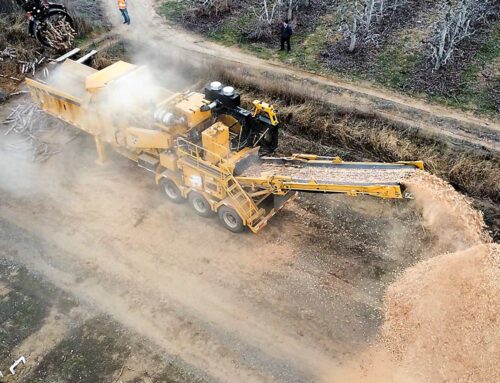
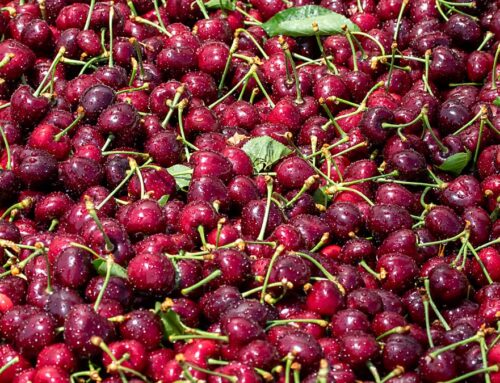
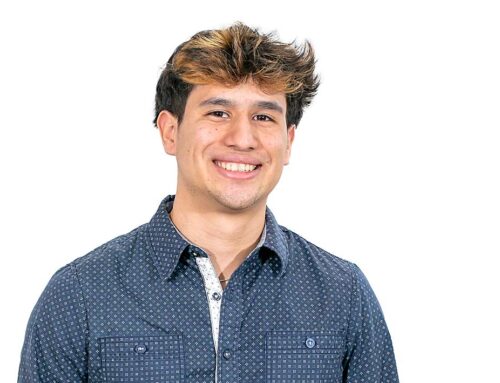
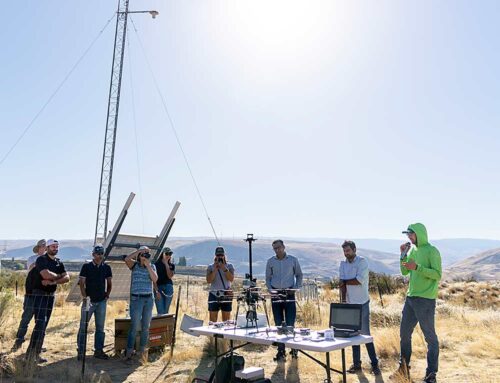
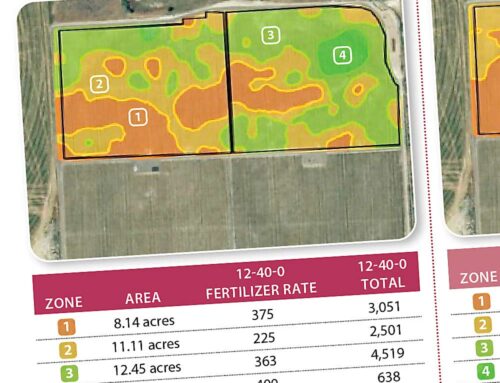
Leave A Comment